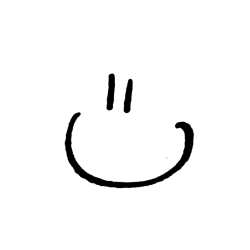— Kodos (as Bill Clinton) (“The Simpsons: Treehouse of Horror VII”)
I look back on this particular series with some trepidation. At the time, like many, I watched the series constantly, it was everywhere. Its ubiquity manufactured affinity. Prevalence implied a it as a prerequisite. A ‘given’
Wading through the fog of creativity has now become somewhat of a joy. The excitement of finding solutions, or rather them finding you, stepping on a landmine propelling you to ‘the next level’.
In the case of the ARP, I am still deep within the fog of The Crit and critique more generally. There is certainly movement in this game of minesweeper. Setting flags for interesting points of investigation:
Labour. Data collection and processing is labour intensive, with much work existing already.
Analysis. Similarly, there are those more expert than I who have done this work.
I have the opportunity to speak to students about this and feel a pull towards highlighting the process element of critique. As The White Pube mention, art school is an ‘expansion pack’. (Paraphrasing) You go in, weird things happen you have to make sense of, at the end of it, you have a more expanded consciousness and are better for it…usually.
I am also beginning to think that the point is not to try and do something new per se, but to re-direct ourselves to the scholarship that already exists as being beneficial. The form of experimentation in the critique will emerge naturally through reflecting on the challenges of the crit.
I would like to encourage depth of critique through iterative interviews. In an ideal situation, students I work with a few in number and are open to interacting in as many stages as possible.
Stage 1: 1:1s
Stage 2: Focus Groups
Stage 3: Questionaire
Stage 4: Aftercare
This feels ambitious, so I want these stages to be the simplest version of themselves.
I want questionnaires to be both ‘automatic’ and ‘arresting’.
BANG. BANG. BANG. woah. <- perhaps this is the structure, 3 quick fire questions (non-binary choice but scaled) and 1 open one.
Things to develop:
Chunking and formalising actions/processes. (i.e. opening/closing crits)
Questions to cover with students
Timeline & labour considerations/allocation.
Research Question
Final thoughts on the research question.
Will this emerge through the process?
Is it in aftercare? this is a word I have used a number of times and am sure that is where my interest in critique lies. Perhaps I would like to speak to these students directly and ask:
What did you feel?
What could have been done
What could now be done
How do you feel about this in relation to your journey?
Have you noticed any adjustments/changes in light of this?
Is your process developing?
What have you taken away from this intervention?
How do you feel about the event after having this intervention?
